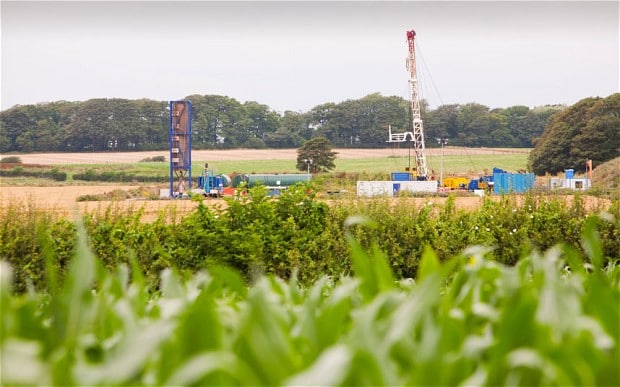A vital meeting between fracking bosses and the then-Conservative environment secretary remains shrouded in secrecy as the government refuses to disclose a key document.
The Department for Environment, Food and Rural Affairs (Defra) argues there is a “strong public interest” in withholding an internal briefing document provided to Owen Paterson by officials ahead of meeting with industry executives on 22 November 2013.
This briefing document appears to be integral to UK fracking policy development. As Defra states in response to a freedom of information (FOI) request: “Although the briefing was submitted just over a year ago, this is an evolving area and many of the issues covered by the briefing still remain under consideration.”
The November lunchtime meeting was held between the then-chairman of the Environment Agency, Lord Smith and Paterson, who has wasted no time in criticising environmental policies since being sacked this past July.
Chief executives Francis Egan of Cuadrilla, Andrew Austin of iGas and Ken Cronin of the UK Onshore Oil and Gas operators group (UKOOG) also attended the meeting.
Of course this is not the first time Paterson and fracking executives have held important meetings.
‘Urgent’ meetings
As documents obtained by Energydesk through FOI reveal, Cuadrilla executives held a series of “urgent” meetings in June and July 2013 with Paterson and the Environment Agency about permission to drill for shale gas in Balcombe and Lancashire.
The November 2013 meeting appears to be the culmination of these summer meetings.
Defra does acknowledge that “there is a public interest in disclosure of information concerning policy development in relation to shale gas”.
But despite this, it argues: “it is important that Ministers and officials can consider implications of potential impacts and scenarios around the development of the shale gas industry and to develop options without the risk that disclosure of early thinking could close down discussion.”
No other notes, minutes or readouts came out of the meeting itself so it seems any and all clues as to what climate sceptic Paterson was – and perhaps still is – discussing with industry executives and government officials lies in that briefing.
Greater transparency needed
Jack Alexander, head of research at Request Initiative, will be appealing Defra’s decision on behalf of DeSmog UK. He said: “We intend to take this all the way to the tribunal if we have to. It is absolutely vital that our political leaders are held up to scrutiny when making decisions that will have profound economic and environmental implications for the whole country.”
“Greater transparency is needed to allow the public to have a better-informed debate on the benefits and risks of shale gas,” argued Alexander.
Even Lord Smith himself said during a debate on the future of British shale gas held in May last year that “the greater the information and transparency on shale, the better”.
Photo: Alamy via creative commons
Subscribe to our newsletter
Stay up to date with DeSmog news and alerts







